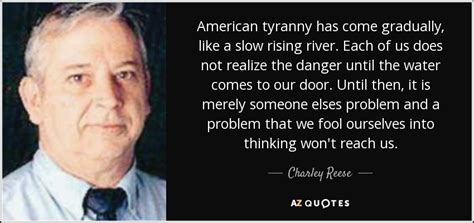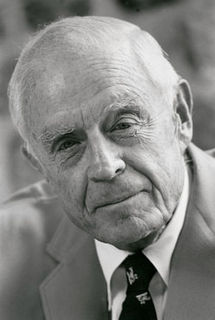A Quote by Daniel Handler
All his life, Klaus had believed that if you read enough books, you could solve any problem, but now he wasn't so sure.
Related Quotes
I teach something called The Law of Probabilities, which says the more things you try, the more likely one of them will work. The more books you read, the more likely one of them will have an answer to a question that could solve the major problems of your life.. make you wealthier, solve a health problem, whatever it might be.
You know, you still owe me pancakes. I think I could go for…apple cinnamon ones now. “ “Apple cinnamon? You sure are demanding.” “It’s all right. I think you’re man enough for it.” “Thetis, if I actually believed you had either apples or cinnamon in your kitchen, I’d make them for you right now.” I didn’t answer. I was pretty sure I had some year-old Apple Jacks, but that was about it.
Obama has some manacles, and that might limit him. However, he's the first American president to raise $600 million for his campaign. That frees him from lobbyists; it frees him from special interests, and it could free him from those who would manipulate him. If he is going to solve the problem, he has to be free enough to solve the problem between the Israelis and the Palestinians.
I held his gaze. I could see the storm in his eyes. I knew he was confused. I could see the fear. Then there was the love. I saw it. The fierceness in his eyes. I believed it. I could see it clearly. But it was too late now. The love wasn't enough. Everyone always said that love was enough. It wasn't. Not when your soul was shattered.
Solving the population problem is not going to solve the problems of racism, of sexism, of religious intolerance, of war, of gross economic inequality. But if you don't solve the population problem, you're not going to solve any of those problems. Whatever problem you're interested in, you're not going to solve it unless you also solve the population problem. Whatever your cause, it's a lost cause without population control.
Churchill faced his own diminishing capabilities and increasing irrelevance by maintaining the sense that he was the only one who could solve whatever problem was before him. He was very often wrong, of course, but then he had spent so much of his life overcoming appalling mistakes, disasters, and rejections.
We have to start encouraging women to get into math and science early on in life... But to just say TechCrunch is perpetuating the problem because there aren't enough women speakers at our events is just a way to get attention and not solve the problem. So do we want to solve the problem, or do we want to just pick on me?


































